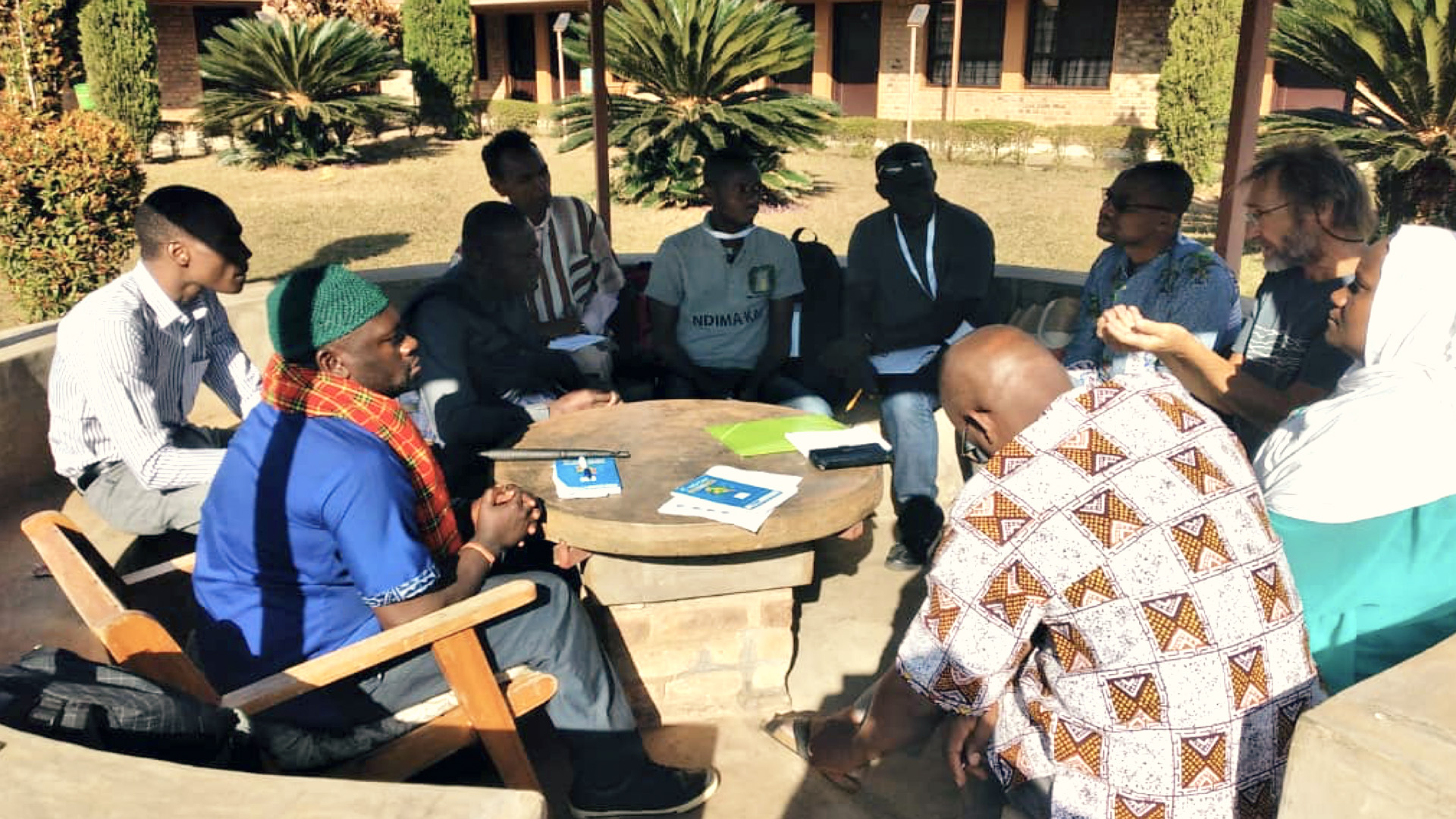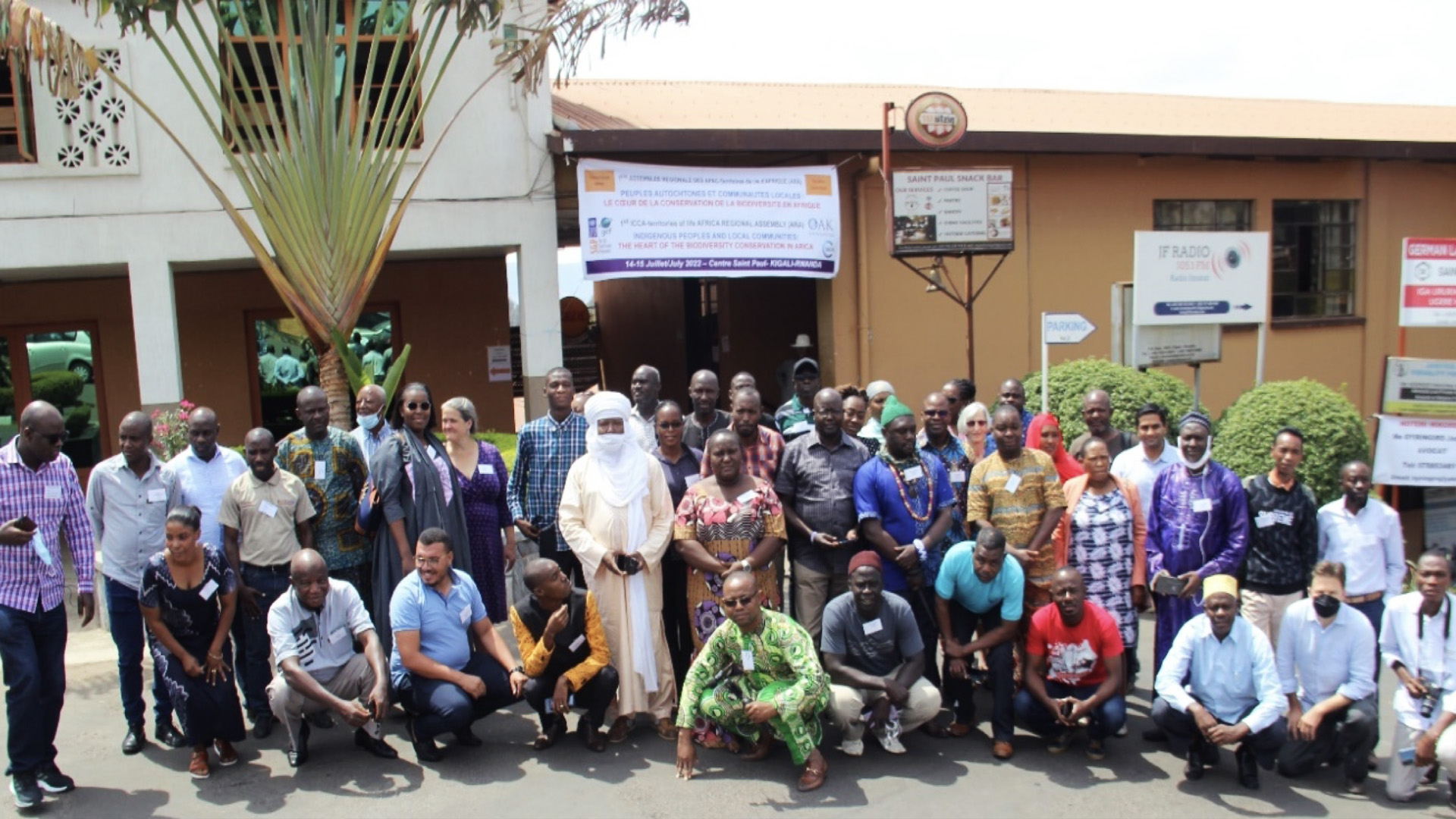The meeting was held on July 14 and 15, 2022 in Kigali, Rwanda
First published on 03/17/2023, and last updated on 07/04/2025
By ICCA Consortium
Translation: Margaret Besser
The second regional assembly of Members, Honorary Members, coordinators, and focal points working to promote and defend African ICCAs—territories of life was held on 14–15 July 2022 in Kigali, Rwanda, ahead of the first Africa Protected Areas Congress organized by the International Union for the Conservation of Nature (IUCN). Some fifty participants from close to half of the countries in Africa shared their experiences.
Assembly participants came together to learn from one another and to forge ties in their work to defend the rights of Indigenous Peoples and local communities, community-driven conservation and bio-cultural diversity. It was also an opportunity for representatives of African ICCAs—territories of life to take stock of their activities and to develop two important proposals: the Kigali Declaration, and a new organizational/representational structure for the region.
Opening session and organization of work
The assembly opened with words of welcome from select members of the Presidium and an overview of the history and evolution of the ICCA—territories of life movement, with a focus on Africa.
Next, participants from each sub-region gave presentations on their respective ecosystems and their communities’ bonds with their territories of life. They described their struggles to protect their territories of life and their efforts to make governments recognize their communities as custodians of those territories, as well as their natural and cultural value. Participants also described existing networks and those that they hoped to create. These brief introductions gave participants the chance to get acquainted and share similar or differing experiences, as well as the broad diversity of situations, challenges, solutions and activism being undertaken. The exchange inspired proposals to collaborate across communities and countries.
Participants then broke into small groups to discuss the values embedded in ICCAs—territories of life, external and internal threats, commitments that needed to be made and useful forms of support. The group discussions focused on two main points: (i) the Kigali Declaration and (ii) a new structure for the regional organization and representation of African ICCAs.
The Kigali Declaration on African territories of life
The Kigali Declaration is a concise, accurate and clear summary of the assembly’s deliberations. It is intended as a statement of advocacy on behalf of ICCAs—territories of life throughout Africa, and will serve as a tool and reference for the hundreds of communities in Africa that have joined the movement. The many core values set forth in the declaration include the importance of ancestors, the goods and services provided by nature, community solidarity, peace and life. The declaration also describes the challenges and threats faced by ICCAs—territories of life, which are insufficiently protected in national legislation and threatened by various forms of exploitation, land-grabbing and modernism in general, not to mention expanding terrorist activity in the Sahel region.
A new organizational structure
Participants discussed at length how the movement is structured in Africa and how African ICCAs—territories of life are represented within the Global Council of the ICCA Consortium.
The following proposal grew out of the discussions:
- a representative structure comprising five levels: local, intermediate, national, sub-regional and regional
- division of the African region into six sub-regions, with six coordinators and five representatives to the Global Council.[1]
Participants drew up a map of the six sub-regions, a list of the countries in each sub-region and a table setting out the distribution of coordinators and representatives, including the names of nominees. The new system will be submitted to the global Consortium and, if approved, will be proposed for adoption at the General Assembly of the Consortium in 2023.
Discussions were also held with two organizations, Natural Justice and RAMPAO,[2] both of which pledged concrete, mid-term support for structural changes in the African section of the Consortium. Natural Justice offered to donate an office space, and RAMPAO to pay for a dedicated staff position. In light of these generous proposals, the coordinators expressed the desire to set up a permanent secretariat for Africa that would alternate between Dakar and Nairobi to provide balanced support to Francophones and Anglophones. Each sub-region would have one or more assistant secretaries working on specific themes, based on the sub-region’s needs.

Closing session and conclusions
At the closing session of the assembly, the Kigali Declaration was read aloud in French and English, and unanimously approved. It was decided that the new organizational and representative structure would continue to be discussed at later meetings (during the Africa Protected Areas Congress) to make the proposal more complete, cohesive and fully consensus-based. Participants described the second regional assembly as a great success, with high-quality discussions and a good distribution of participants, and they left feeling energized and hopeful in their fight to meet the many challenges facing ICCAs—territories of life in Africa.
The assembly wishes to thank the following partners for their financial support: the Small Grants Program of the Global Environment Facility (GEF-SGP) and the Oak Foundation.
[1] At the time of writing, and at the express invitation of the Global Council, six representatives will be nominated for approval at the General Assembly of the Consortium in 2023.
[2] Network of Protected Marine Areas in West Africa (French: Réseau des aires marines protégées d’Afrique de l’Ouest).
